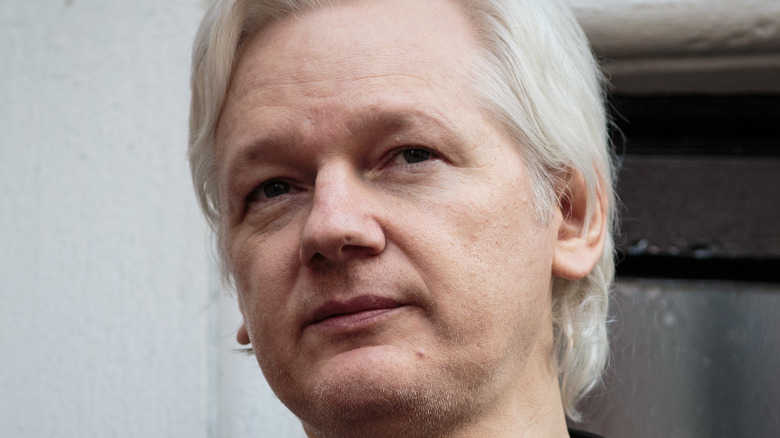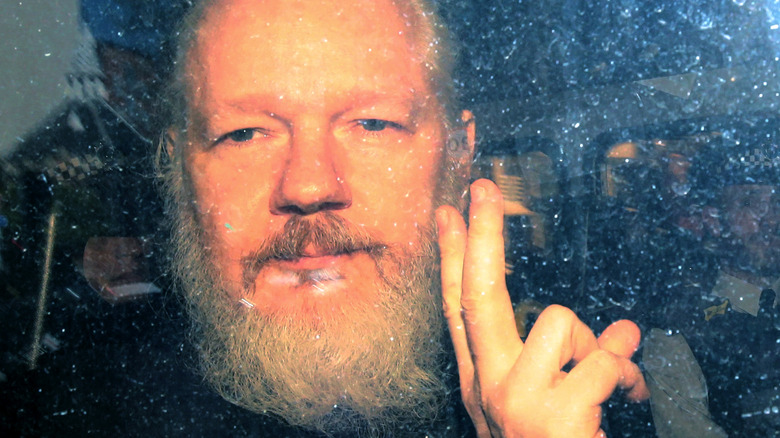The Charges Against Julian Assange Explained
Julian Assange, the founder of WikiLeaks, has evaded the United States for more than a decade since assisting in the publishing of material by Army whistleblower Chelsea Manning (via The New York Times). In late 2021, a British court found that the Australian national could be extradited to the U.S. to face his Espionage Act charges. Assange's lawyers hoped to avoid extradition, claiming that prison conditions in America were so harsh that they might lead Assange to commit suicide.
Assange faces 18 counts of charges related to the Manning leaks (via BBC). The accusations by the U.S. government fall into one of two categories. The first is related to charges that his actions to help Manning and encourage whistleblowers amounts to a hacking conspiracy; the second is that by publishing classified information, he was in violation of the Espionage Act.
But what is Assange accused of in this case, and what are the implications?
A victory for Biden — and Trump
After the Manning leaks, Julian Assange was not charged by the Obama administration, which concluded that punishing him for his WikiLeaks activity would be a threat to the freedom of the press outlined in the First Amendment (via The Intercept).
The Trump administration, however, aggressively fought to criminalize Assange's activities and extradite the WikiLeaks founder from London, where he was staying within the Ecuadorean Embassy (via The New York Times). When Assange was charged by the U.S. in 2019, the embassy ejected him, and he was sent to London's Belmarsh prison, partially due to the extradition warrant (he was also charged with skipping bail, according to the Times). When President Biden took office, he continued the Trump administration's efforts to extradite Assange, despite the concerns of the earlier Democratic administration.
As the Times points out, these charges may have wide-reaching effects within the journalism industry and call into question certain aspects of the First Amendment.
Daniel Ellsburg — the famous leaker of the Pentagon Papers, which helped turn the public against the Vietnam War — has pointed out that some of the charges applied to Assange could also apply to him. "Whatever he's guilty of, I'm guilty of," he said in an interview with Exberliner. "The motives were similar. The difference being, I was a source, he was a publisher. He was like The New York Times [the publisher of the Pentagon Papers]."

